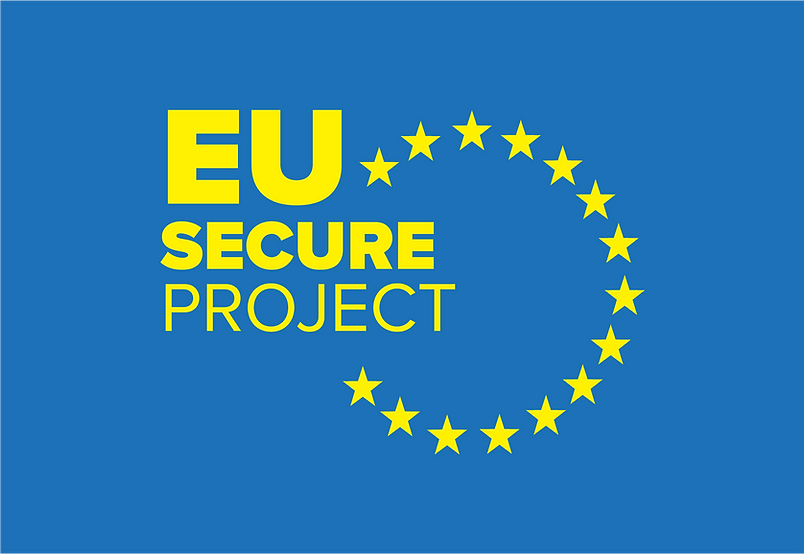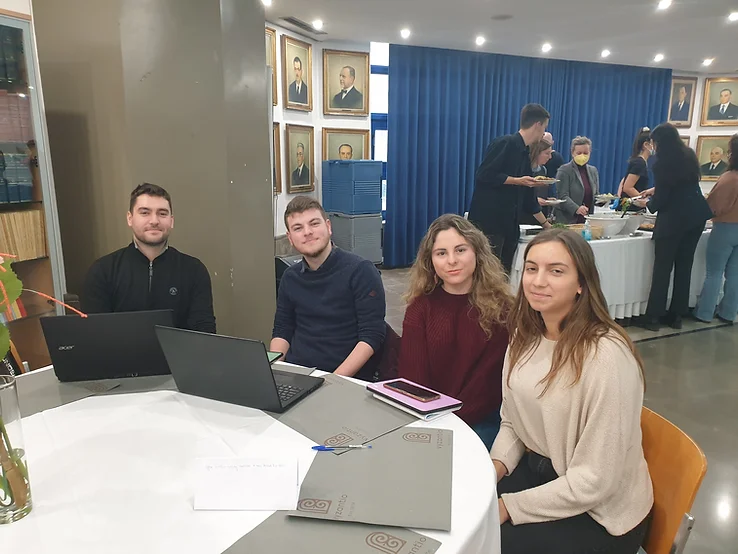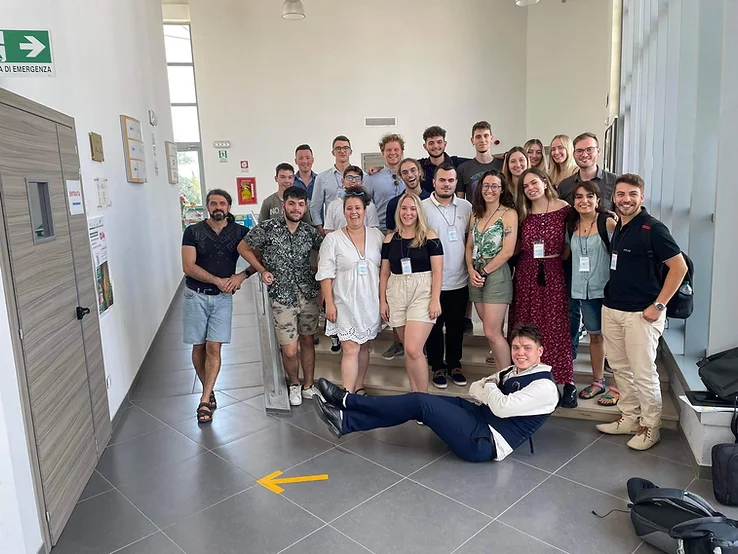
How to prepare for future security challenges in the EU? What is a negotiation like in the European Parliament? And how do these decisions affect our daily lives? These are some of the fascinating questions that the National University of Public Service's Erasmus+ strategic partnership project, EUSecure was looking the answers for. The project was made more experiential using a simulation exercise.
EU talks on the Italian coast
| 5 universities participated in the project: the University of Pireus from Greece, the University of Salento from Italy, the Gernando Pesoa University from Portugal, the Sapientia University from Romania and the National University of Public Service. |
Three staff members of the university are talking about one of the most exciting and award-winning projects. How was the project set up? What was the goal you had in mind when you designed it?
Anna Molnár, Prof.Dr.: The main objective of the EU Secure Project was to develop a curriculum for an optional subject, combining traditional and online teaching methods. The aim was to develop a curriculum that would cover a comprehensive range of security areas from climate safety to energy security, we covered migration issues, as well as water and security issues. Even maritime security and cyber security were included in the curriculum.

How could you manage to make these lessons experiential for the students?
András Varga: The simulation was implemented as an integral part of the project both online and offline. The students were taught about modelling the decision-making process of the European Union by examining how different interests of the Member States can be channelled into security policy-related issues.
Why is this useful for an average young citizen?
András Varga: The most important thing is to give the public a clearer idea of how the European Union works and what kind of decision-making structures it has, so when they read a news item about a European decision, it becomes more understandable and more accessible to everyone.
What is the biggest achievement of the project?
Anna Molnár, Prof.Dr.: In addition to the five universities, three other universities have introduced the curriculum, so now we can see that more than one thousand people started using it in some way.

In addition to university students, you have managed to involve secondary school students as well. Can you tell us about this?
Éva Harnos Jakusné Dr.: EUSecure Lite, which we developed for high school students was a huge part of EUSecure. On one hand, it was about social media and fake news, on the other hand, we worked a little bit on the problem of health security. Social media fake news, social media networks are right at the heart of what this age group is interested in.
What was the most memorable moment of the project for you?
Anna Molnár, Prof. Dr.: The most memorable moment was the summer university, where fifty students from the five universities participated in Lecce. It was very hot, with temperatures around 35 degrees Celsius, but I think that it was really memorable for everyone and a very good experience.
András Varga: One of my favourite memories was at the summer university in Lecce, when a Greek student was given Cyprus as a Member State to represent, and he represented the interests of the state with unimaginable attitude and enthusiasm. Summer and winter universities also had a „lighter side”, strengthening the connection among students. That’s what this simulation was about, working together in small groups with people they had met for the first time the week before.
Éva Harnos Jakusné Dr.: After several lessons, they started to talk on their own (secondary school students) about the safety risks of social media.

The project was awarded this year's Erasmus+ Award of Excellence for the most succesful initiatives. What could be the 3 factors of the success?
Anna Molnár, Prof. Dr.: Maybe the first one is creativity. To be able to implement the project, it was necessary to have the creativity of the partners and our own. The second is internationalisation, the project was implemented in an international environment. The third one is professionalism: everyone could contribute the highest possible level of excellence in their field, which is necessary for success.
Last modified: 26-08-2024















